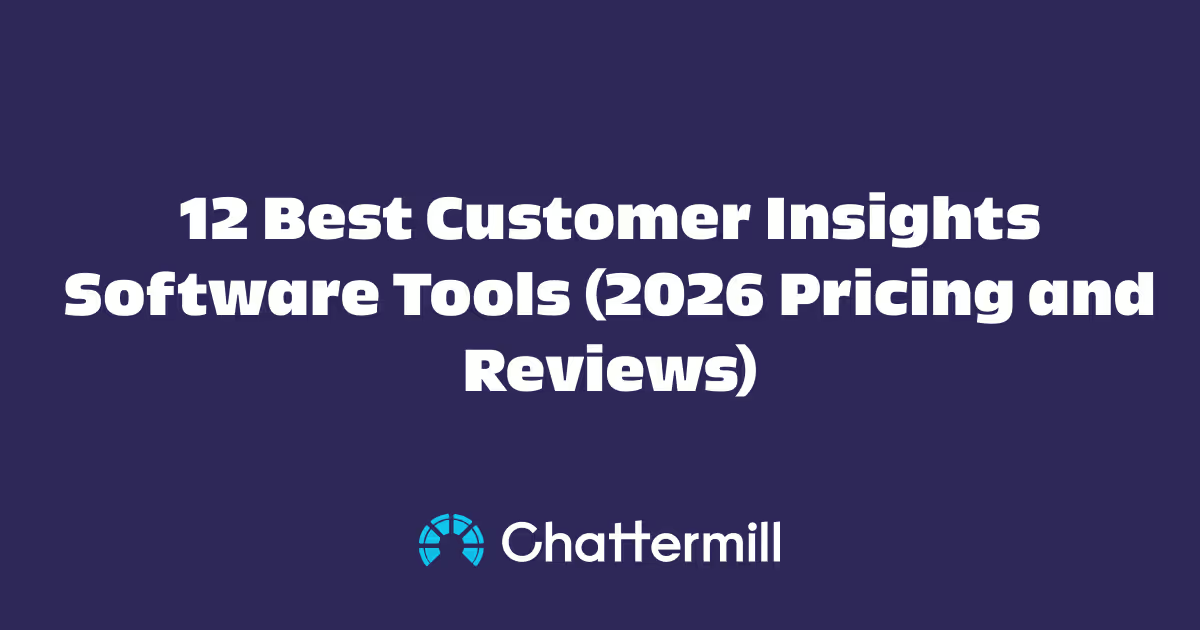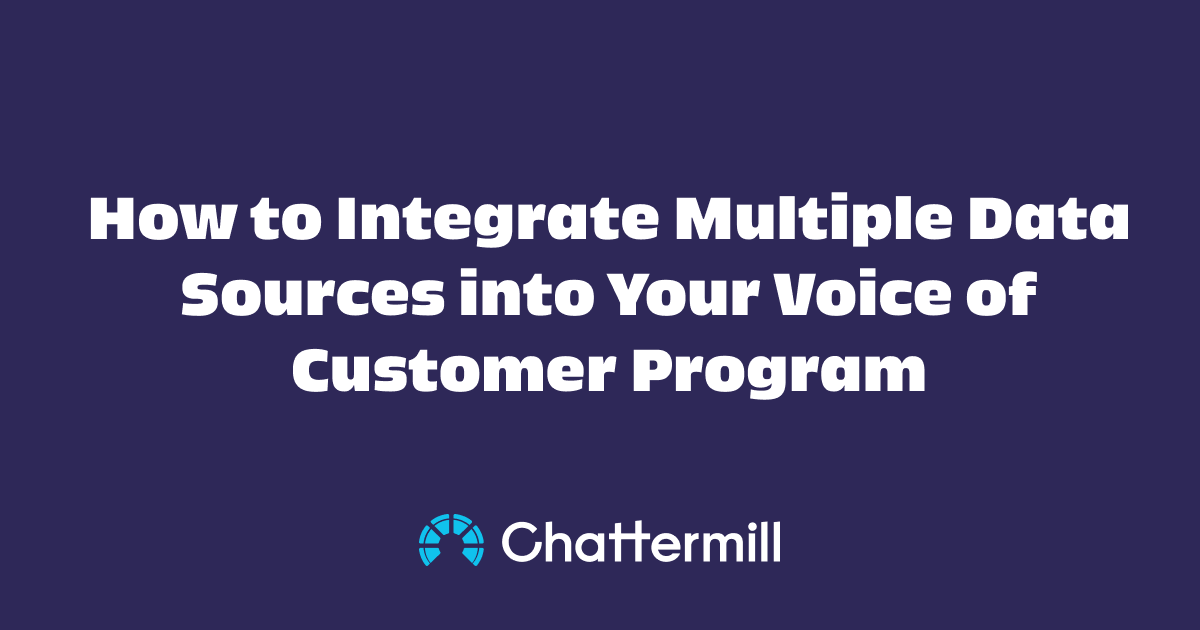The CX news cycle. It’s hard to get through any article today without hearing Artificial Intelligence (AI) mentioned. Whether it’s chatbots, the impact of Chat-GPT, or how it will steal your job, AI is everywhere.
But though it has become tiring to work your way through the buzz around AI to understand how it might impact you as a CX professional, it’s clear that AI will have some noticeable effects on how we work. And to be honest, in this case, it’s no bad thing.
Because though AI is hailed as a game changer across many industries, in the travel sector specifically, it will without a doubt have a significant impact.
Most notably, in its ability to help you analyse customer data at scale, give you actionable insights that you can then use to better understand customers, and make more accurate, strategic decisions.
But first, let’s start by looking at how AI will impact travel brands more broadly, and assessing how we currently approach CX in travel, tourism, and hospitality.
AI will change the game in travel
AI is already changing the way customers interact with your travel brand.
Let’s take the example of Chat-GPT. It may only have been with us for a year, but it’s already shifting how customers interact with businesses in our industry.
Expedia and Kayak have, for example, already built integrations with Chat-GPT so that customers can search for and book holidays using the Chat-GPT engine. This will only be used by a minority of travellers for now. But it is one signal for the direction we’re heading in. And it’s an entirely new experience for current and potential customers.
Similarly, AI-powered chatbots, which have been with us even longer than Chat-GPT, will continue to significantly impact customer experience .
Though there are some questions about whether customers actually like using them, the impact on customer satisfaction is net-positive.
As Forrest Morgeson of the Customer Satisfaction Institute at Michigan State University explained in a recent MyCustomer interview, “any industry with significant human intervention in consuming goods and services scores lower than those without it [AI-powered chatbots].”
There are obvious emotional questions around job displacement that come from these technological advances. But as a customer experience professional, the result of these new customer experiences could be net positive.
And that’s before we even delve into how powerful AI will be in enabling you to better understand customer data at scale.
But first, let’s take a quick reality check on customer understanding in travel today.
Learn More About The Future of Customer Experience in Travel, Tourism, and Hospitality
Time for a reality check: The way travel brands listen to customers is broken
As we all know, the travel industry is incredibly competitive, and customer experience is critical for success.
In recent years, there has been a shift towards a more customer-centric approach, with companies focusing on delivering personalised experiences to their customers.
Indeed, 80% of businesses are expected to be competing mostly on CX in the years ahead. In the travel industry, where experience is everything, this percentage is likely to be higher.
As a recent McKinsey report on the future of travel notes, “wise investment in CX may be key to the industry’s survival, and flourishing, in a post-pandemic world.”
With the exponential growth in online bookings, and the rapid advancements of feedback technologies, chatbots, and social media, travel companies now have access to vast customer data that should, in theory, facilitate customer-centric experiences.
However, harking back to McKinsey again, we find that:
“while travel executives may believe their companies deliver strong CX today, our research indicates there is room for improvement. Common challenges include inconsistency in CX across products, services, and digital; difficulty predicting customers’ sentiment without having to ask them; and time lags in going to market with updates, releases and enhancements.”
So, put simply, there’s a lot to work through.
What we often hear from the travel companies we speak to is that most rely solely on surveys such as NPS and CSAT. These include multiple-choice likert scale questions and are run on an ad-hoc basis.
But is the standard approach working? Not when you look at what’s happening in the market.
The customer profile has changed, travel companies haven’t
A recent piece by Userpilot tells us that 67% of customers ignore or abandon customer surveys due to survey fatigue.
As response rates go down, CX professionals in travel decrease the frequency of surveys or include fewer open-ended, free-text questions. The result? Fewer qualitative insights.
While numbers on a scale of 1-10, or 1-5 stars may give you a broad, albeit limited, understanding of where you stand from a CX perspective, they don’t give you real voice of customer insights which you can then act upon.
Customers are choosing different channels to communicate
By only focusing on NPS and CSAT, travel brands are also ignoring a huge part of the voice of the customer.
Why? Because customers today are interacting with your brand and giving you unstructured feedback across, on average, twenty different channels.
For customer-centric brands that know how to best use and analyse this data, this can be as many as a hundred across their organisation.
Social media, email, chatbots, app reviews: all of these channels need to be analysed to get a full picture of what customers actually want from travel brands.
Travel brands don't have the capacity or resources to analyse large volumes of unstructured customer feedback
Put simply, most travel companies need help analysing open-text feedback and need to learn how to process and make sense of unstructured feedback at scale.
Because ultimately, customers want the freedom to respond to your surveys in their own words. But only 18% of companies can currently analyse open-text feedback.
There’s a good reason for this. Done manually, or even with weak AI, analysing open-text feedback in a way that delivers meaningful insights is nigh-on impossible.
Companies don't have enough actionable insights
Shockingly, just 13% of CX leaders think their company can take action on CX issues in real-time.
What this means is that, for the most part, CX professionals are making decisions based on intuition, not understanding the ‘why’ behind customer behaviour.
To sum the situation up
When we consider all of these challenges together, it becomes clear that the way we've been listening to our travel customers is broken.
It's not scalable, it's not providing actionable insights, and it leads to most customer feedback being ignored.
As a result, customers are frustrated, and travel brands are struggling to win the CX battle against their competition.
And they really can't afford to ignore the voice of the customer as the market is far more competitive than it ever was before.
“Despite steady satisfaction ratings, negative sentiment is on the rise” -
- Mckinsey - Rebooting customer experience to bring back the magic of travel
Why Travel Brands Need to Double Down on Customer Experience
The good news? AI provides an answer to these challenges
While that little reality check might be somewhat depressing reading, there is good news ahead.
Because, for most travel brands, you already have all the data you need to start truly listening to your customers in their own words, and at scale.
You just need AI to give you a helping hand to turn those words into actionable insights.
AI can help you identify where you’re not meeting customer needs
Today, more data is available for CX leaders than ever, with hundreds of thousands of customer reviews, support interactions, feedback responses and social media conversations. By itself, however, this data isn’t especially useful.
To unlock the value from these ever-increasing customer data sources, you need to be able to unify and analyse them at scale and be able to filter through the noise to find genuine customer insight. And for that, you need artificial intelligence.
Because no matter how many analysts and insight professionals you hire, you’ll never be able to get the accurate, near-instant insights needed to understand what customers care most about and what you need to do to remedy their pain points and common complaints.
This is especially important for social media data.
Currently, social media is rarely used as a source of customer experience insight.
Historically, there’s a good reason for that. Previously, it was near-impossible to filter through the thousands/millions of posts to hear what customers actually want and desire . The same can be said for spam-filled customer support interactions.
But CX professionals should take note, especially if they want to attract and retain younger travellers. In a recent Skift article, 39% of young people said they use social media to plan for a vacation.

It’s not just for researching that social matter for travel, too.
In a recent Chattermill webinar with Joshua Butler (Senior Insights Manager @ Deckers Brands, a footwear retailer) and Dana Alvarenga (VP of CX @ SlapFive, a CMS SaaS), we found that social media is the preferred channel across generations for sharing feedback and solving customer service issues.

Put simply, you need to listen to beyond just NPS if you’re going to see the true reality of what your customers actually want from you. To help unlock this insight, you need artificial intelligence to help you sift through and analyse this data.
Specifically, you need AI that’s specific to the CX use case.
We call it Unified Customer Intelligence.
What is Unified Customer Intelligence?
Put simply, Unified Customer Intelligence (UCI) gives businesses a central hub of intelligence for all things customer related:
By integrating with over 50 different channels, and focusing on providing unification across key data sources such as surveys, social media channels, reviews, support tickets, chat conversations, or custom datasets, UCI gives travel brands a single source of customer truth.
With UCI, you can apply a powerful analytical interface on top of your data sources. This means applying state-of-the-art machine learning models to analyse unstructured feedback at scale and enhancing your traditional reporting with in-depth analysis of unstructured text data.
As a result, you and your company will get actionable, context-rich insights and guidance to help you answer any question that's important for your business:
- How can we create better experiences for our customers?
- What are the positive and negative drivers of NPS?
- Which product features should we prioritise?
These answers will help you understand your customers and make informed decisions that will impact your customers’ travel experiences, and ultimately, your business’ revenue.
How Unified Customer Intelligence works
It all starts with unification. We help you unify customer feedback into a central place, providing one shared understanding of the voice of the customers. No more data silos, no more scatter intel across the entire organisation, and no more departments reporting on different metrics.
We help you find these insights in real-time. There are customers who share their experiences about your services and products right now, choosing one of those 20+ different channels. It's time to stop being reactive and focus on proactive strategies by analysing the data in real-time.
We provide actionable insights so you can make more informed decisions and stop making assumptions based on guesswork.
We'll help you democratise these insights across your entire organisation, bringing more alignment and collaboration.
All that will make your CX programs more proactive and scalable as you can finally analyse large volumes of feedback from different channels and across various languages.
Conclusion
The AI-powered future is here to stay for travel brands. With Unified Customer Intelligence, you'll be able to better understand customers, deliver better experiences, and ultimately, drive more revenue and growth for your business.
Whether you're a natural promoter or detractor when it comes to AI, there's no doubt that in this industry, it's here to stay. It's time to take the big first steps before your competitors accelerate past you.


.avif)












